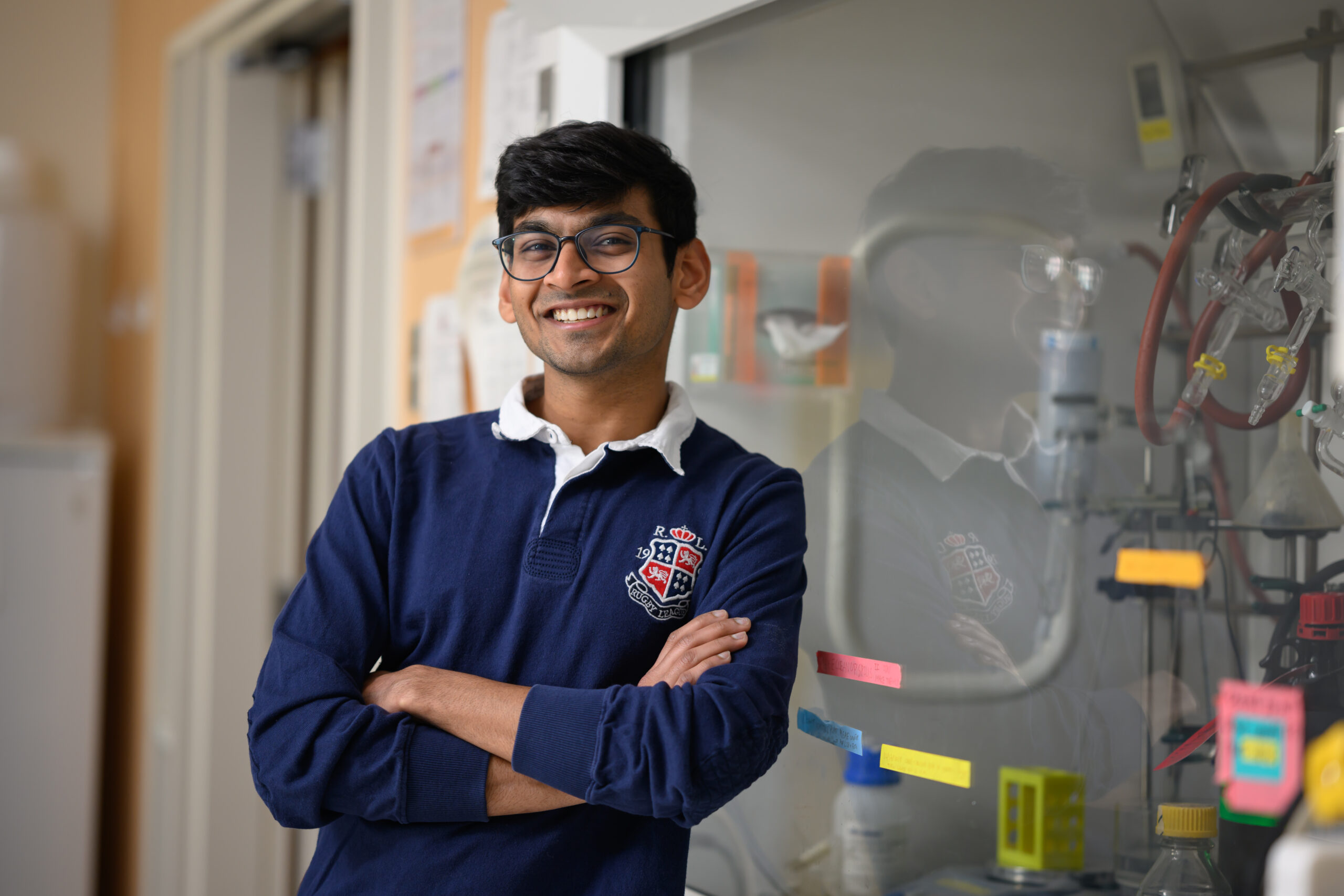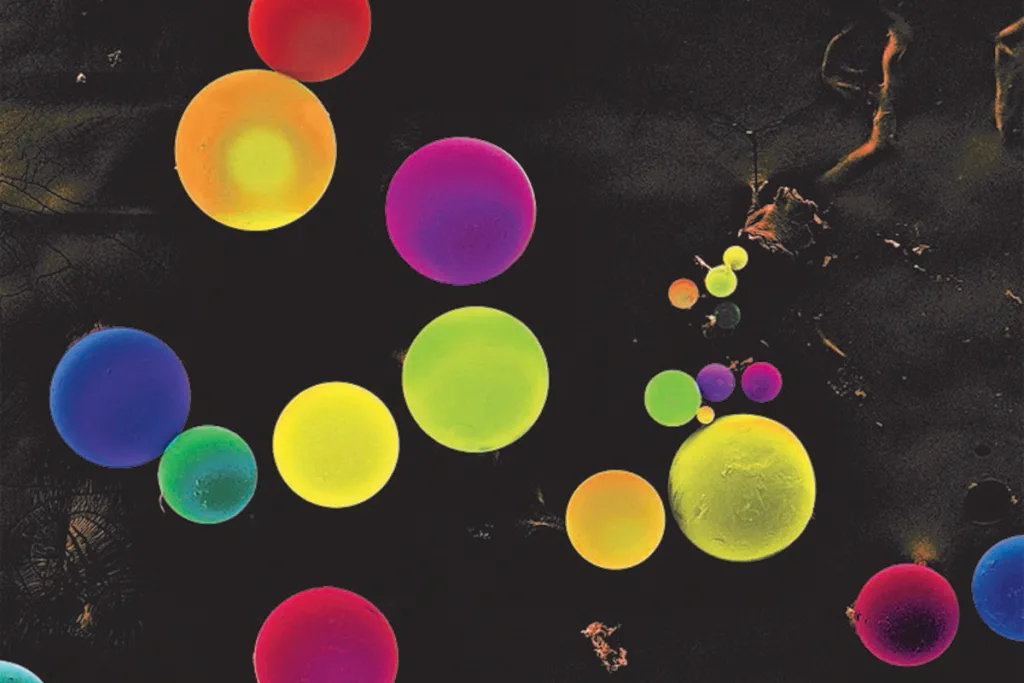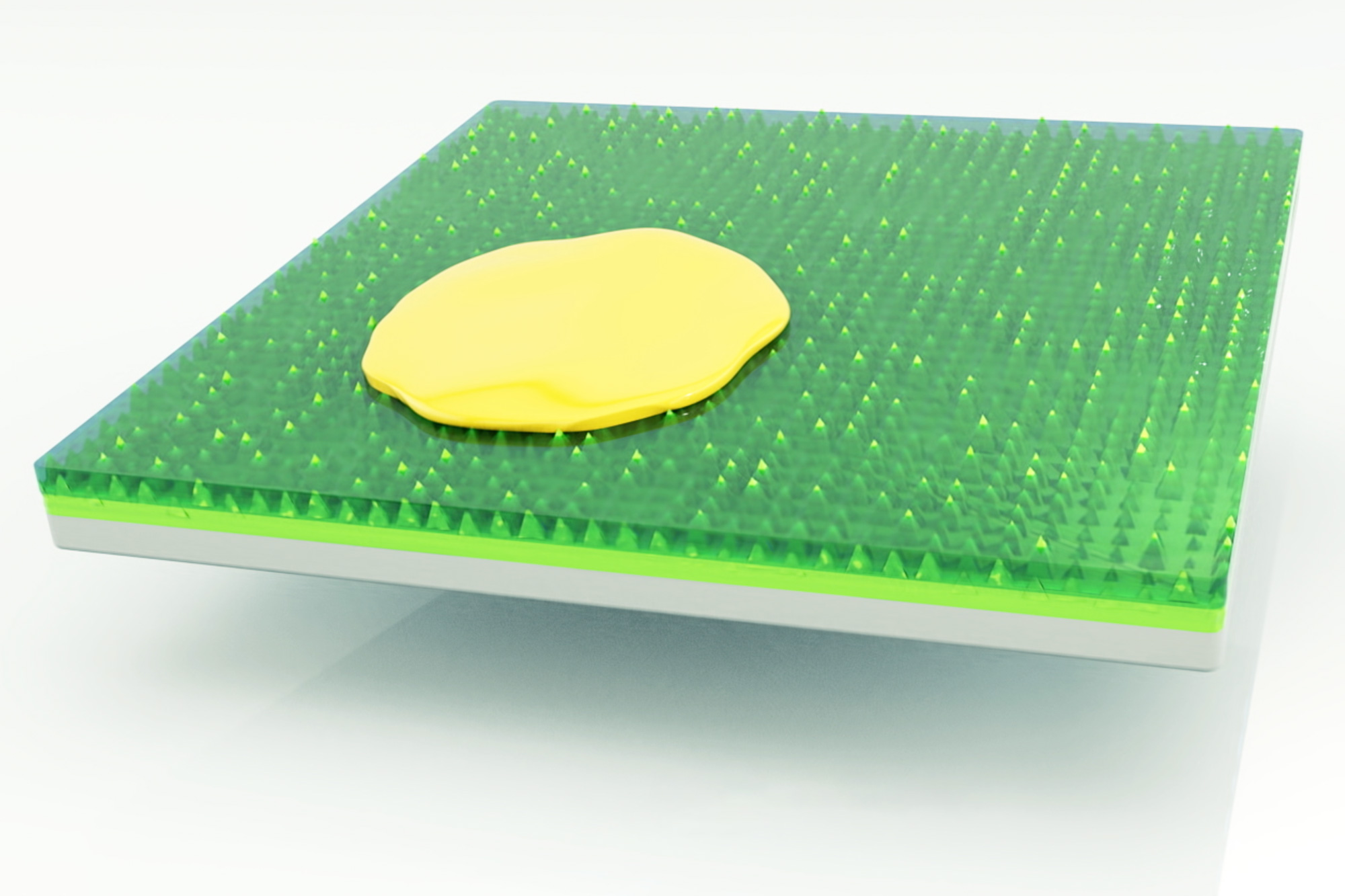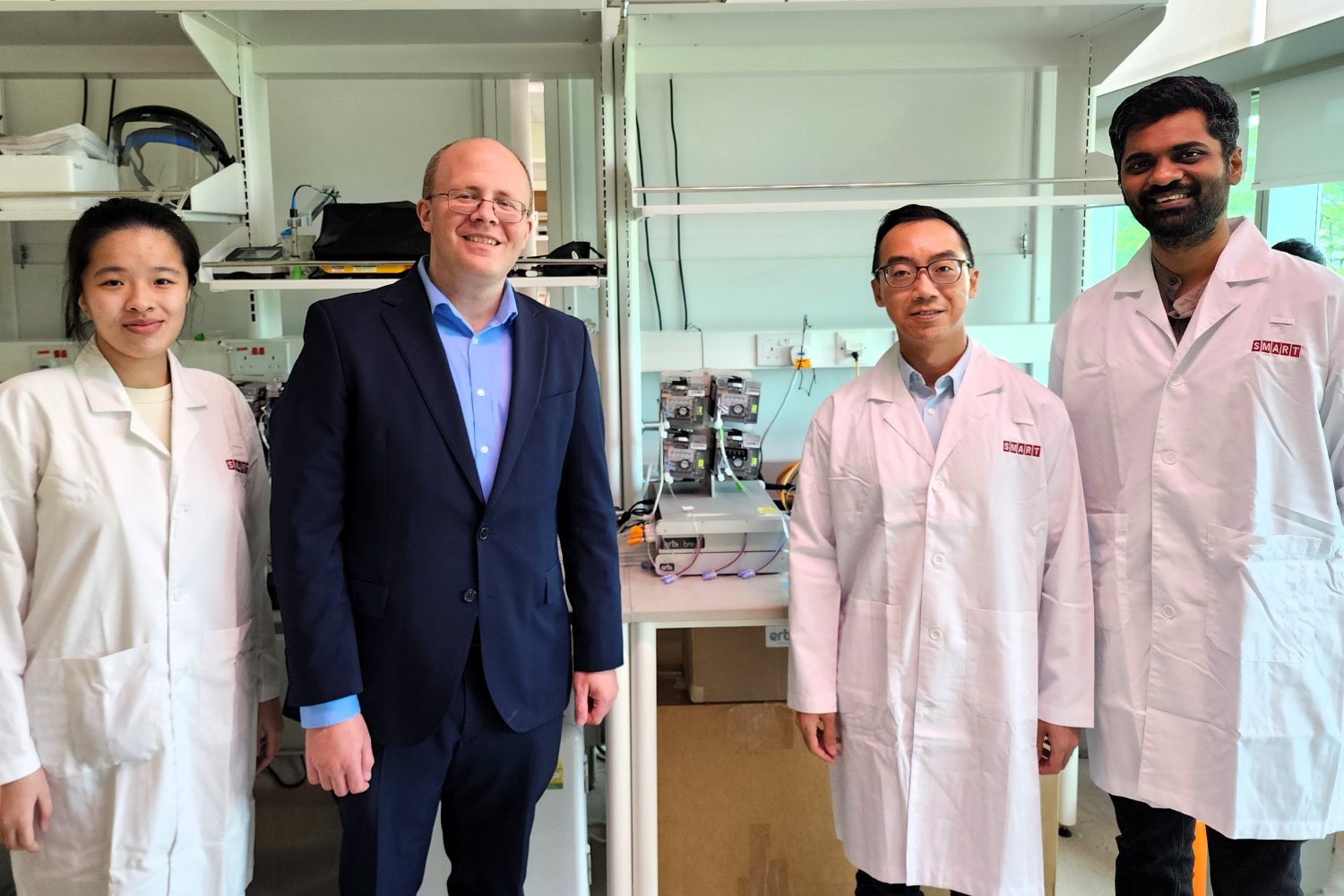Ashutosh Kumar stands out as a remarkable talent in the field of materials engineering. With a lifelong fascination for creating and innovating, his journey has led him to deeply explore steel design and the intricacies of stress fractures in alloys.
Despite his classical training, Kumar’s academic path also was significantly influenced by his interests in biology and medicine. Upon being accepted into the renowned metallurgical engineering and materials science program at the Indian Institute of Technology (IIT) Bombay, the Jamshedpur native felt a mixture of excitement and a yearning to engage with biology.
Now, as a PhD candidate and a MathWorks Fellow in MIT’s Department of Materials Science and Engineering, Kumar harmoniously blends his diverse passions. His groundbreaking research investigates the relationship between certain bacteria and their role in ovarian cancer, including their impact on chemotherapy and immunotherapy efficacy.
“Some bacteria are drawn to ovarian cancer cells, altering their structure and enabling them to thrive under stress,” explains Kumar. “This adaptation may allow these cells to migrate to new locations, potentially developing resistance to chemotherapy. This insight lends itself to new therapeutic avenues aimed at reversing these cellular changes.”
Kumar’s interdisciplinary research intersects microbiology, bioengineering, artificial intelligence (AI), big data, and materials science. By employing microbiome sequencing in conjunction with AI, he aims to identify microbiome alterations that could correlate with unfavorable patient outcomes. His long-term goal is to engineer bacteriophages that can reprogram pathogenic bacteria for therapeutic purposes.
His inclination toward health sciences began early during his undergraduate studies. “Engineering is remarkably adaptable, crossing over into countless applications,” shares Kumar. His journey into biomaterials rekindled his enthusiasm and aligned with both his academic background and personal interests.
“I found the work so fulfilling that I pursued graduate studies,” he recalls. “Starting my PhD program at MIT was an incredible opportunity to pivot toward more interdisciplinary research.”
Kumar first connected with Angela Belcher, the James Mason Crafts Professor of biological engineering and materials science at the Koch Institute of Integrative Cancer Research, to discuss ovarian cancer and microbiome interactions when he arrived at MIT. “I expressed my enthusiasm for human health and biology, which led to fruitful brainstorming sessions,” he recounts. “The need for deeper understanding in gynecological cancers is urgent. Ovarian cancer, in particular, is often diagnosed late when it has already progressed.”
In 2022, Kumar was honored with a MathWorks Fellowship, which supports graduate students in engineering who prominently utilize MATLAB or Simulink tools in their research. “MathWorks allowed me the flexibility to dive deeper into health science research,” he states. “This support opened doors to acquiring new skills and exploring my interests, helping me transition from a steel engineer to a cancer researcher.”
Kumar’s investigation into the bacteria’s relationship with ovarian cancer began with examining which bacteria form tumors in mouse models. “We closely analyze changes in cell structure and their implications for cancer progression,” he mentions. The team employs MATLAB image processing techniques to track tumor metastasis effectively.
Additionally, they utilize RNA sequencing alongside MATLAB algorithms to categorize the bacteria involved. “After pinpointing the microbiome’s composition,” he notes, “we aim to identify how it evolves as cancer progresses, particularly in patients developing chemotherapy resistance.”
Kumar’s recent findings suggest that ovarian cancer might originate in the fallopian tubes, making early detection of cancer-related biomarkers crucial for improving prognoses.
As he navigates this vital research, Kumar expresses gratitude towards Belcher for her unwavering support. “She believed in my commitment to human health,” he says. “Her passion for embracing challenges enabled me to pursue this initiative. She has been an incredible mentor.”
Belcher echoes his sentiments: “Collaborating with Ashutosh on this ovarian cancer microbiome project has been inspiring. His dedication to exploring unconventional approaches to tackle this devastating disease is commendable. His focus on uncovering initial changes in the disease’s microenvironment could play a pivotal role in intercepting and preventing ovarian cancer.”
Kumar, deeply involved in student governance and community-building activities, emphasizes the significance of feeling included in academic settings. “My participation allows me moments away from research,” he reflects. “There’s always work to be done in science, so I intentionally carve out time for social engagement, which aids my mental well-being.”
When reflecting on his unique path from materials science to cancer research, Kumar believes it has unfolded organically. “Life is fluid,” he states. “Our initial plans rarely align with reality. Five years ago, I couldn’t have imagined being at MIT, collaborating with such remarkable scientific mentors.”
Photo credit & article inspired by: Massachusetts Institute of Technology



